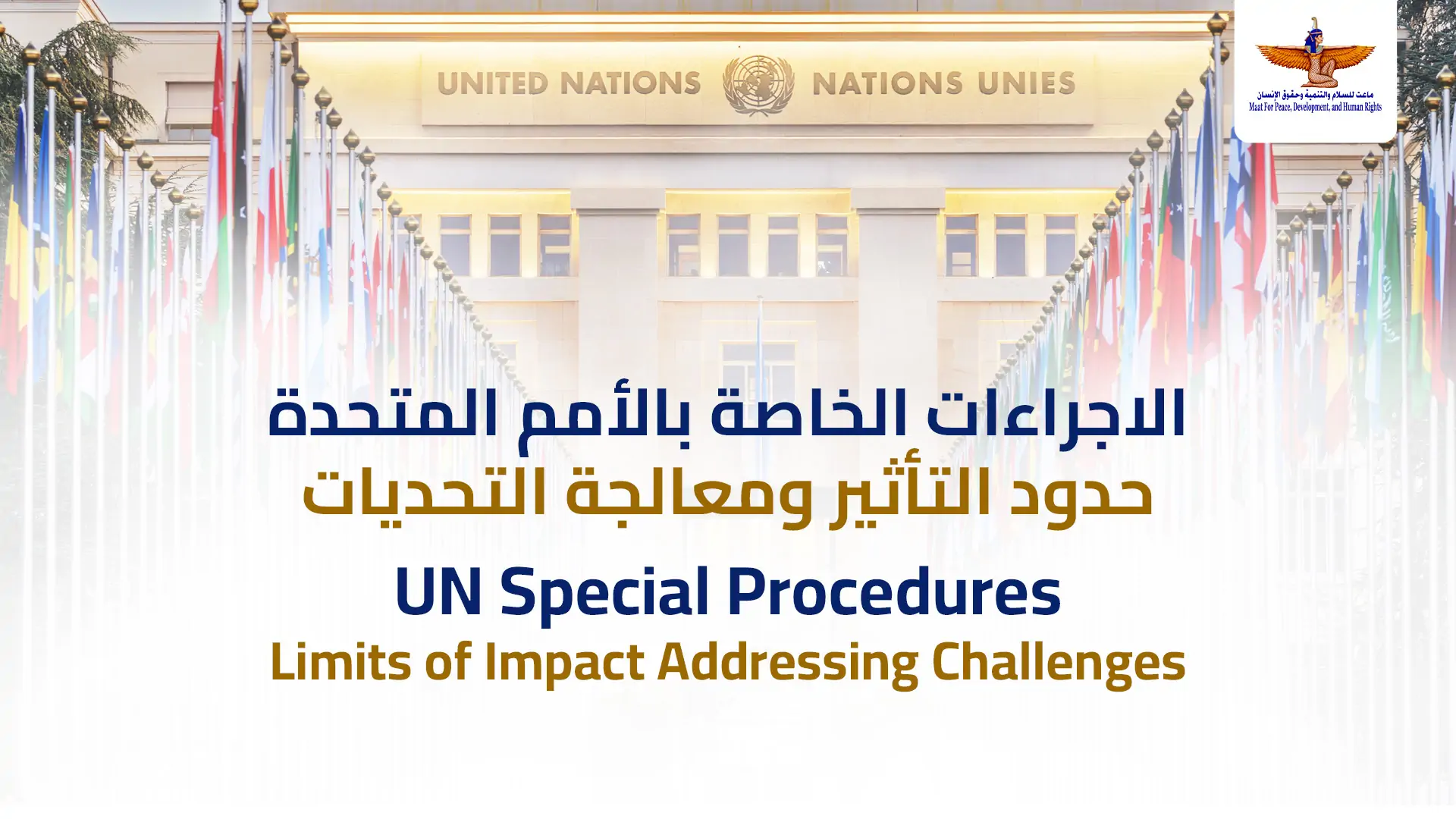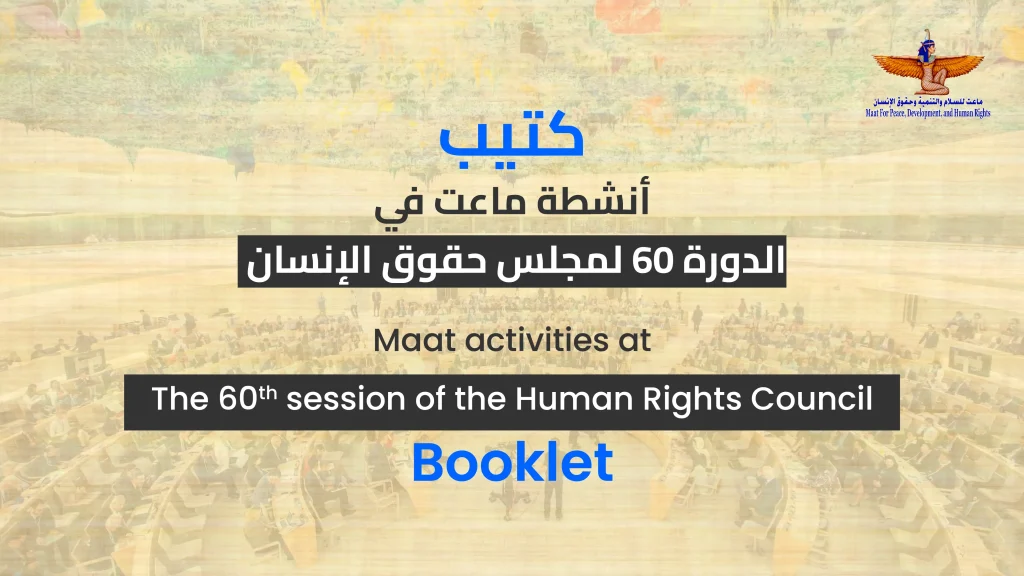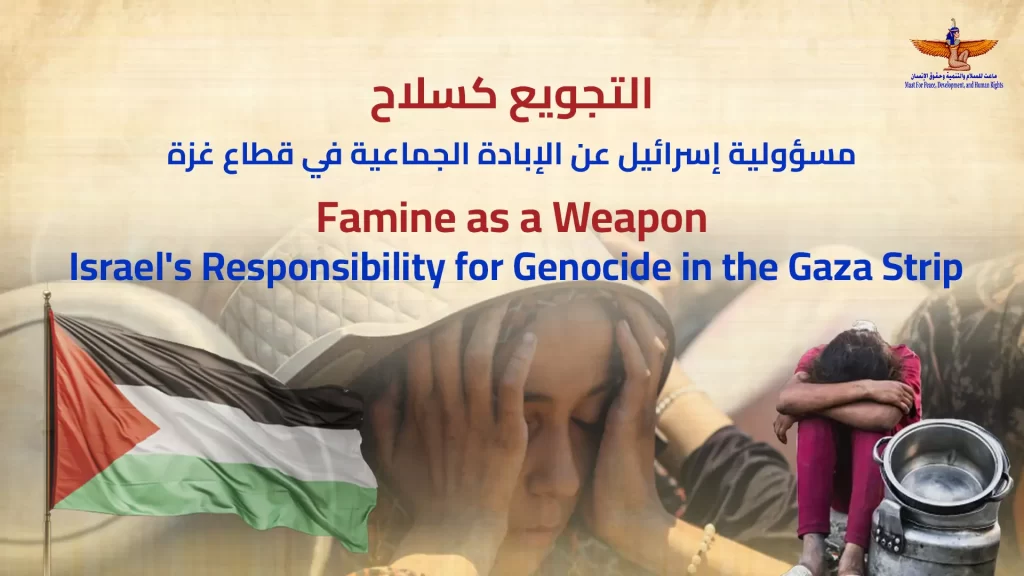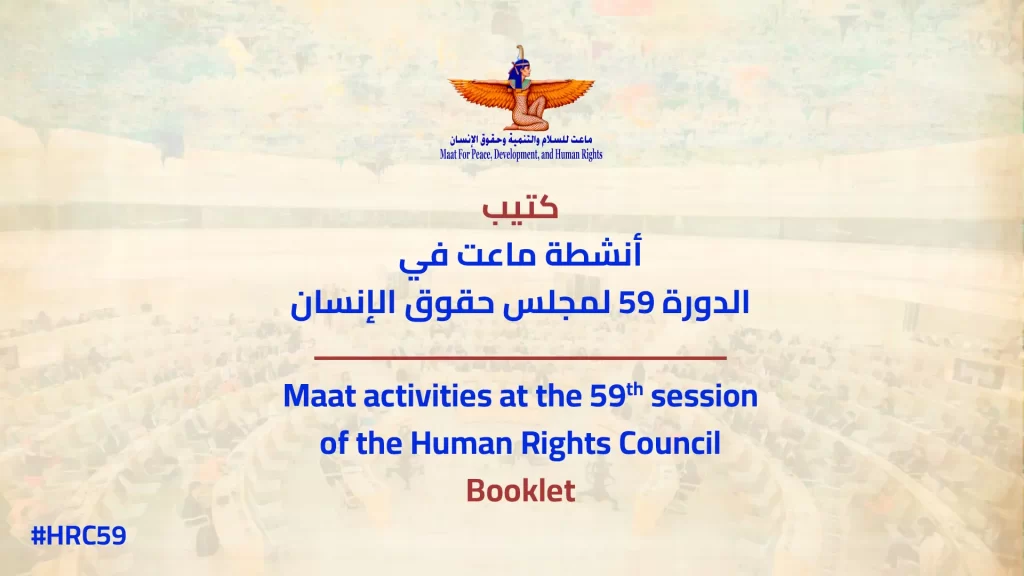Introduction
Special procedures are considered one of the fundamental pillars of the international system for the protection of human rights. They consist of a group of independent experts tasked with mandates aimed at providing reports and advice on human rights issues, whether from a thematic perspective addressing specific issues or from a country-specific perspective focusing on human rights conditions in particular states. According to the latest statistics, there are 60 mandate holders, divided into 46 thematic mandates and 14 country-specific mandates, reflecting the increasing importance of this mechanism in enhancing accountability at the international level.
The roots of special procedures date back to 1967, when United Nations Human Rights Commission—later replaced by Human Rights Council—established a working group to investigate the human rights situation in South Africa. Over time, this mechanism evolved and became one of the most important tools relied upon by the international community to monitor and analyze human rights conditions globally. Mandate holders have the authority to collect information, conduct independent investigations, and prepare recommendations based on international human rights law standards.
Former UN Secretary-General Kofi Annan described Special procedures as the "jewel in the crown" of the international human rights system, noting that they represent the "eyes and ears of Human Rights Council" due to their unique ability to gather information from multiple sources around the world. This makes them a vital tool for amplifying the voices of victims and affected communities. This mechanism is distinguished by its ability to go beyond the halls of UN through field visits to countries where human rights violations may occur. These visits allow mandate holders the opportunity to meet directly with victims, civil society representatives, and government officials, giving them a comparative advantage over other mechanisms, such as treaty bodies, which primarily rely on reports submitted by states.
Human Rights Council, in its resolution 6/42, emphasized the essential role of special procedures in preventing serious human rights violations through various mechanisms that include monitoring, reporting, and making recommendations to states and relevant entities. The Council also urged mandate holders to develop a practical approach to enhance the prevention of these violations and to integrate this preventive dimension into their assessments and recommendations, ensuring the protection of human rights before violations occur, rather than only after they have happened.
Mandate holders within Special procedures possess multiple powers that enable them to effectively carry out their mandates. These powers include conducting field visits to assess human rights conditions on the ground and sending official communications to governments and other actors regarding alleged violations, along with providing specific recommendations for addressing them. They prepare thematic reports based on reliable evidence and data and hold consultations with experts and stakeholders to deepen the understanding of the issues they address. Additionally, mandate holders engage in advocacy activities and raise awareness about human rights issues within their mandates. They carry out these tasks completely independently from the UN, as they are unpaid experts, which enhances their neutrality and independence, allowing them to provide objective assessments free from political or financial pressures.
As part of its efforts to enhance the effectiveness of international mechanisms for the protection of human rights, Maat for Peace, Development, and Human Rights presents this report as part of a series aimed at evaluating and analyzing the challenges facing special procedures, while proposing innovative solutions to enhance their effectiveness. Maat has chosen the 58th session of Human Rights Council as an appropriate platform for disseminating this report, given the importance of this session in discussing issues related to the reform of international human rights mechanisms.
This report aims to highlight the current challenges facing special procedures, particularly in light of the unprecedented financial crisis affecting the United Nations, which directly impacts the ability of mandate holders to effectively carry out their mandates. The report also reviews the impact of the work of mandate holders within Special procedures framework and presents practical proposals to enhance the efficiency of this mechanism, contributing to the improvement of human rights conditions on the ground. Furthermore, the report discusses developments related to General Assembly Resolution 57/300 of 2003, which called for a review of special procedures to streamline their work and enhance their effectiveness, within a broader context of reforming UN human rights system.
This report represents a step towards strengthening the independence and empowerment of special procedures, ensuring their continued role as a key tool for monitoring and analyzing human rights conditions globally, thereby enhancing states' commitment to the recommendations issued by these procedures and achieving more effective protection of human rights worldwide.

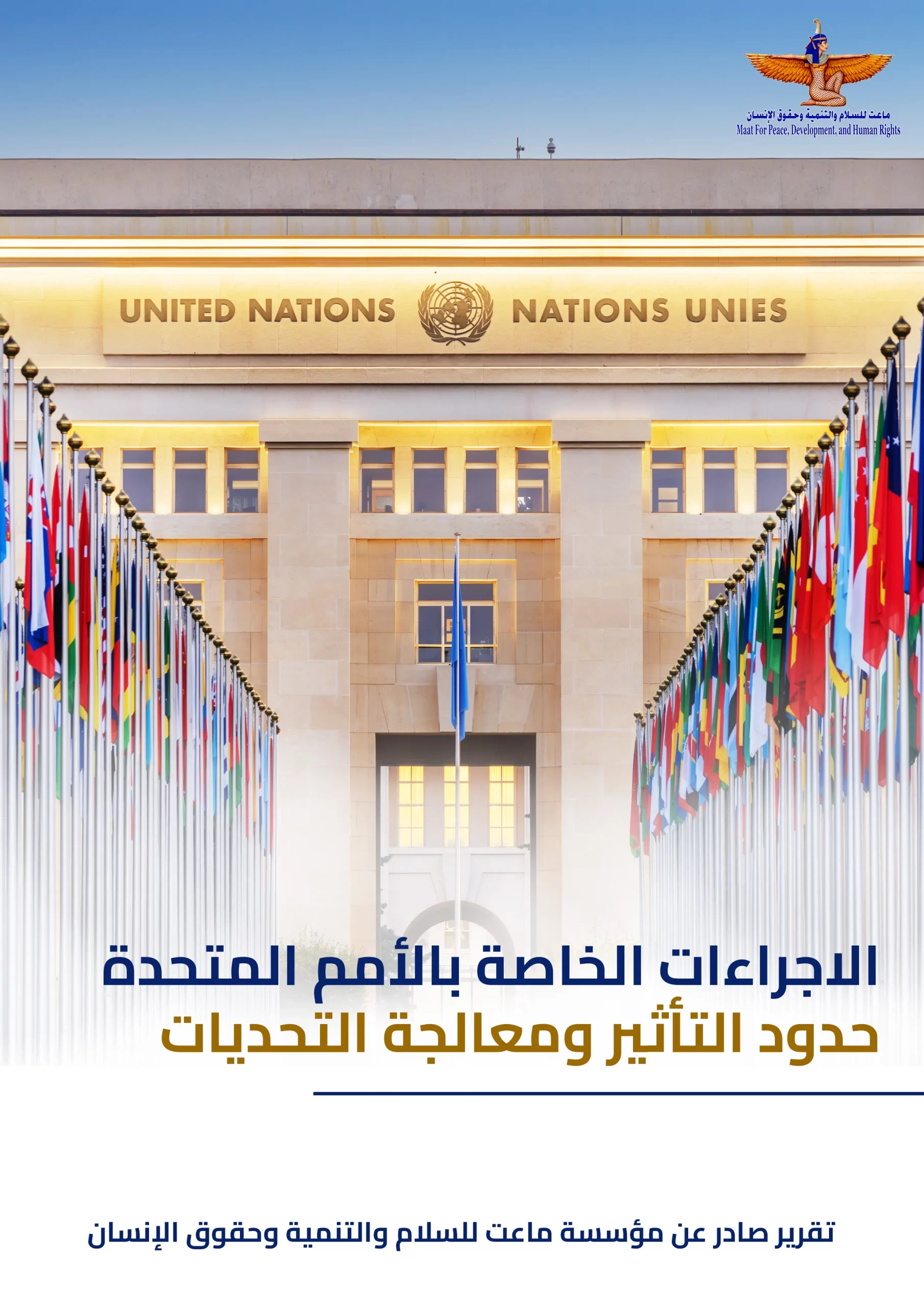 |
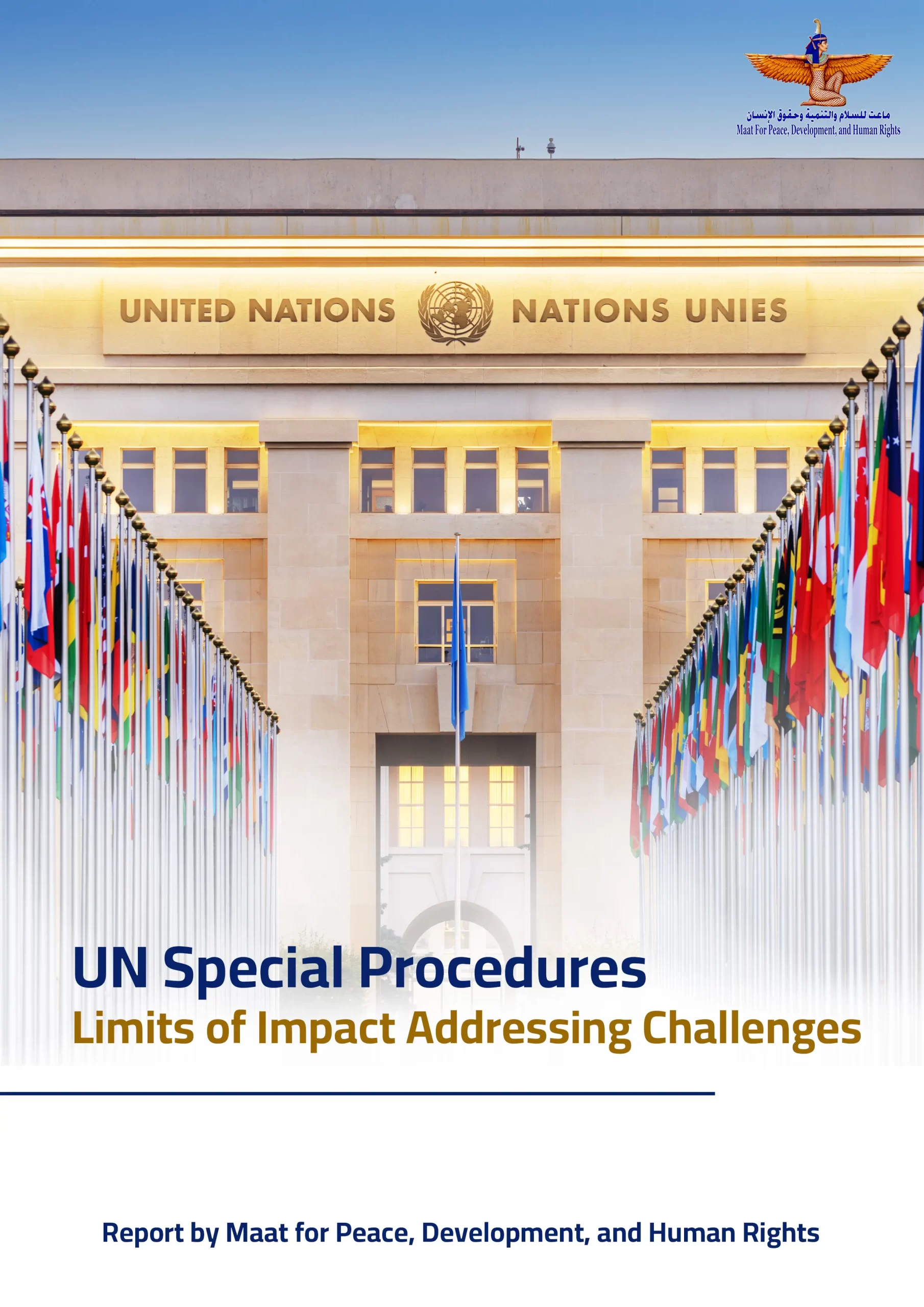 |
shortlink: https://maatpeace.org/en/?p=44404


